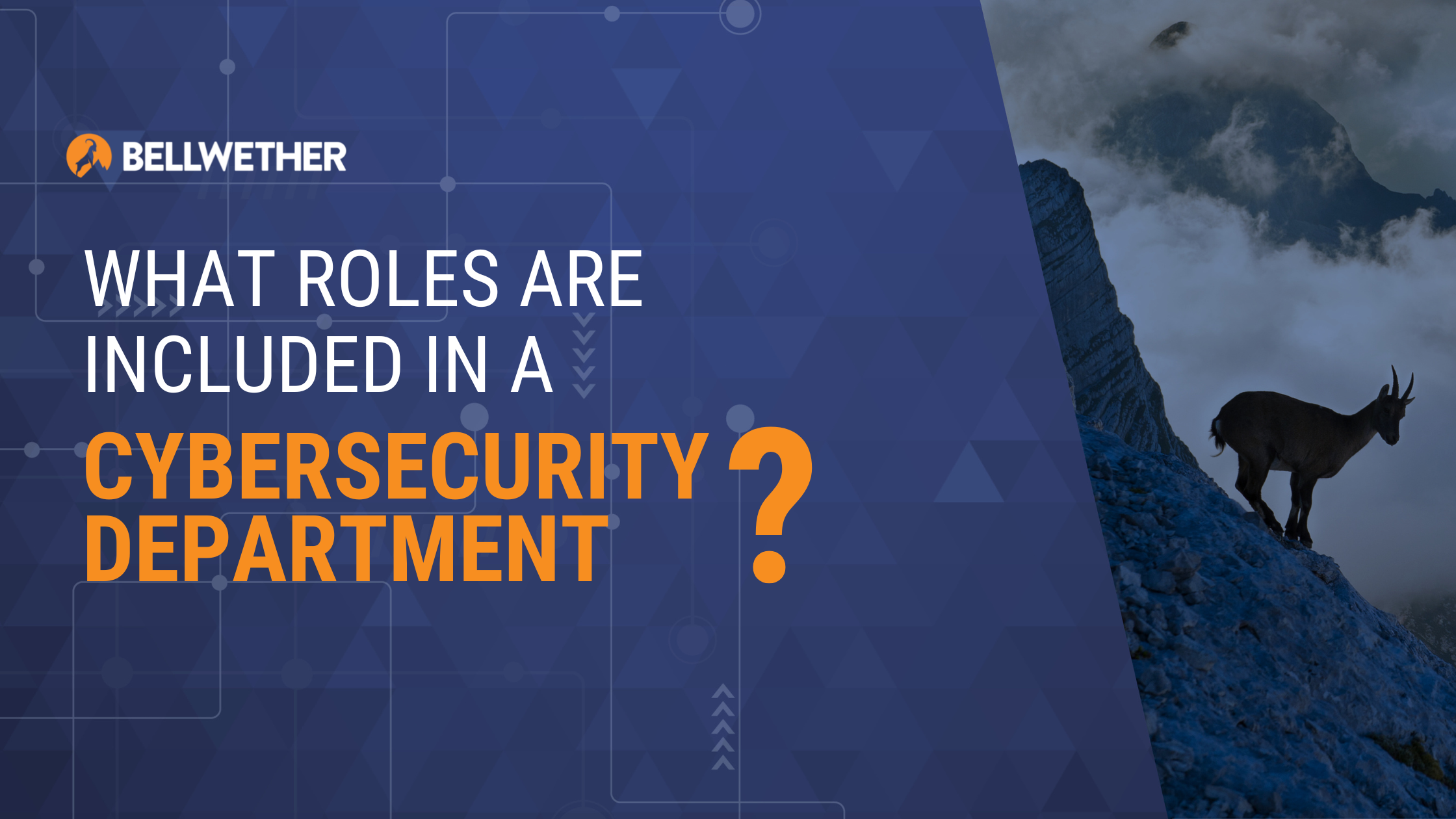
It used to be that whatever needed to be done to manage cybersecurity could be handled by a small internal team. It’s a lot different now. There’s too much for one person to do or know. Today cybersecurity is a discipline of its own that includes different specialties. To cover all the bases, you really need a whole cybersecurity department and that’s not feasible for most small and medium-sized businesses (SMB).
The way that SMB’s are getting the cybersecurity capability they need is to partner with managed IT and cyber defense companies like Bellwether. By outsourcing, companies get access to cybersecurity department services in just the right amount. The outcome is that they can have a sophisticated security stature that effectively manages risk and supports business sustainability.
The Seats to Fill for a Fully Functioning Cybersecurity Department
In this article, we’ll explore the different roles that are needed in a cybersecurity department. Use what you learn to validate that your internal team needs help or as talking points when you’re having discussions to vet different security providers.
- Security Operations Center Manager
- Security Analyst
- Security Engineer
- Security Automation Engineer
- Data Assurance Engineer
Security Operations Center Manager
The Security Operations Center (SOC) manager oversees day-to-day security operations and assists staff when necessary. They devote time to keep up with the cybersecurity community so that they stay abreast of trends and new threats. They make sure that the technology tools the team uses are the right ones and they oversee the process of testing new tools.
The SOC manager is involved in the creation of cybersecurity strategy. They oversee compliance management and make sure that any activities that need to take place, such as annual pen testing, are planned and implemented.
Security Analyst
Security analysts are the people who are the first to know about potential intruders. They respond to alerts and research incidents to find out what happened so that it can be prevented in the future. Security analysts also manage security tools and make sure that the software is up to date. They may perform periodic auditing to make sure that processes are aligned with best practices.
Security Engineer
Security engineers are responsible for managing and maintaining infrastructure as it relates to security. So when a new piece of hardware or software is added to an IT system, they configure it so that the settings that need to be turned on are turned on, and the settings that should be turned off are turned off. The security engineer also conducts threat hunting to proactively identify and investigate anomalies that may be hiding an intrusion.
Security Automation Engineer
The security automation engineer identifies opportunities to improve security processes and creates automations to take out manual steps or reduce complexity. Processes that are good candidates for automation include incident response, security tool installation, and management of network equipment.
Data Assurance Engineer
The data assurance engineer is responsible for setting up data backup systems and making sure that they are working as expected. They conduct periodic tests to make sure that data integrity is intact. When a data recovery is needed, the data assurance engineer will facilitate the restoration process.
Do You Have Empty Cybersecurity Seats?
Now that you know the different roles and functions that are found in a cybersecurity department, you’re in a better position to determine whether you’ve got all the bases covered or if you have gaps. Unfortunately, cybersecurity isn’t something that you can put on the back burner until you have more time or money to deal with it.
Managed Cyber Defense for Small Businesses
The way that small businesses get all of the cybersecurity expertise they need is through Bellwether’s Managed Cyber Defense services. If you want to become confident about how your organization is handling cybersecurity, we’re here to help.
Get in touch to schedule a meeting.
